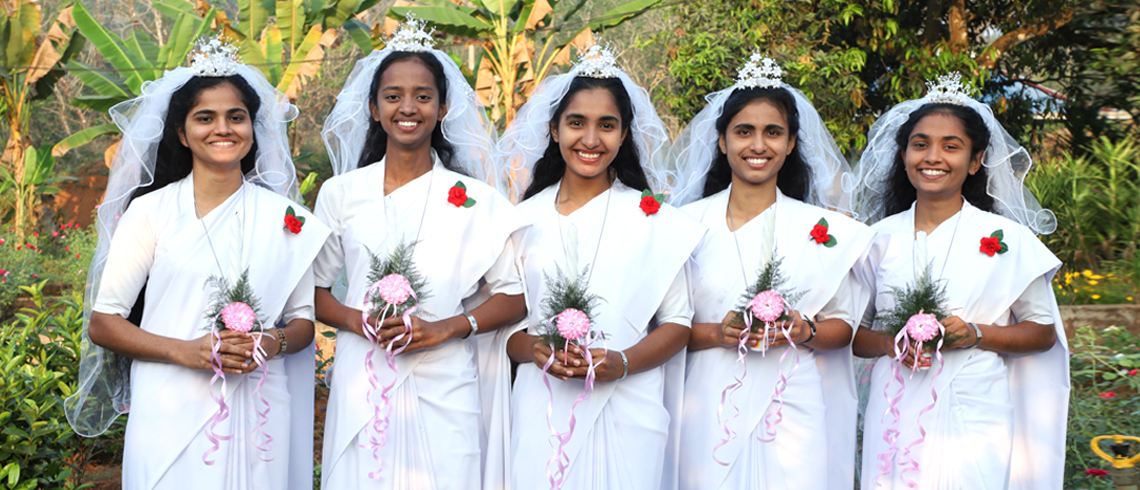
Formation
"And those whom he predestined him also called, and those whom he called he also justified; and those whom he justified he also glorified" (Rom: 8:30). Our Vocation is a call to follow the prayerful and austere life of the Holy Family. Therefore, our religious formation is Christ - centered, ecclesiastical and according to the Charism of our Congregation. This formation leads us to Jesus experience.
Different Stages of Formation
Aspirancy
During this initial year of formation, emphasis is given to fostering human virtues. In this period, formatters and candidates assess the genuineness of their intention to accept religious life. This is the time to discern the candidates' motivation and develop their spiritual, intellectual and artistic talents. They are taught to pray and work together in unity and harmony.
Postulancy
Postulancy is the period of immediate preparation to enter the Novitiate. This period is one year long, during which one learns about community life, its responsibilities, spirit, and Christian doctrines. This helps one attain maturity in making responsible decisions about religious life.
Novitiate
Novitiate is the initial stage of religious life and the most important period of spiritual formation. The novices form and shape their hearts and minds according to the spirit of the Congregation. Novices acquire a deep knowledge of the duties of religious life, the spirit of the Congregation, the liturgy, and the Scriptures.
The Novitiate is two years long, the first year of which is canonical. During this period, the novices understood that religious life is a challenge and that to carry out the apostolic mission, one must follow the path of sacrifice. At the end of the Novitiate, the novices make their temporary commitment to the vows of chastity, poverty, and obedience.
Juniorate
Juniorate is the period between the temporary profession and the perpetual religious commitment. It is a preparatory stage for their perpetual profession. This period helps them understand the meaning of their consecration through practical experiences. Spiritual and religious training continues during this period, and they acquire the necessary theoretical and practical knowledge of the various apostolic activities of the Congregation.

